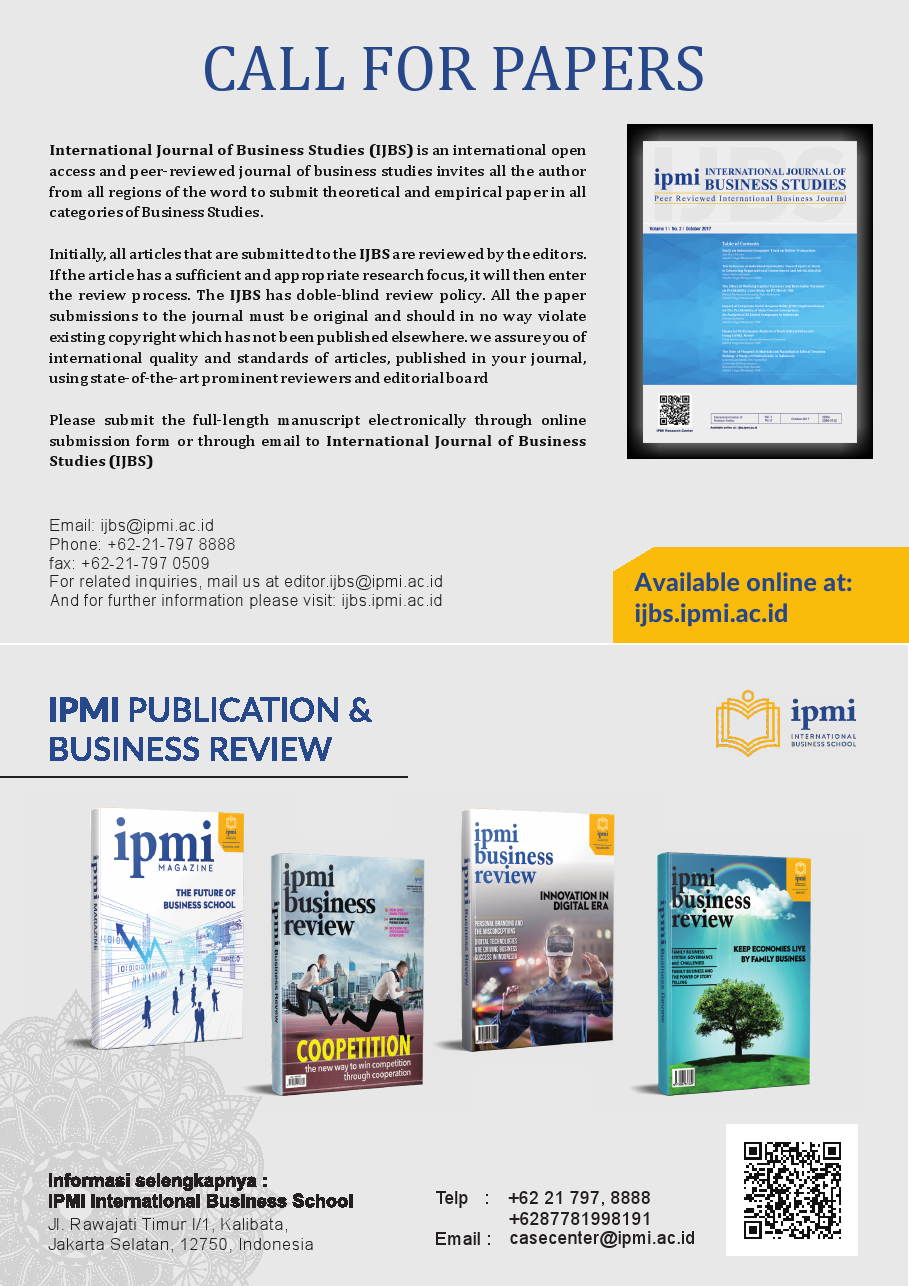The Impact of Service Quality, Product Quality, and Innovation on Customer Satisfaction through Advocacy Model for SMEs Baby Shops in Jabodetabek
The Impact of Service Quality, Product Quality, and Innovation on Customer Satisfaction through Advocacy Model for SMEs Baby Shops in Jabodetabek
DOI:
https://doi.org/10.32924/ijbs.v8i2.290Keywords:
Small and Medium Enterprises, Service Quality, Product Quality, Innovation, Customer Satisfaction, AdvocacyAbstract
The infant and maternity market in Indonesia is expected to expand in the coming years as a result of rising purchasing power. This study aims to examine the effect of service quality, product quality, and innovation on customer satisfaction, as well as the influence of advocacy on SMEs baby shop customers in Indonesia. Purposive sampling was utilized to collect a total sample of 112 responses from Jabodetabek customers. The data used to test the hypotheses were obtained through a questionnaire and processed quantitatively using SPSS and SEM PLS. The study find that there are positive effect on service quality, product quality and innovation to customer satisfaction. Also there is positive effect on product quality, innovation, customer satisfaction to advocacy. Just one hypothesis that rejected, that is no effect for service quality to advocacy. This study focus on examine which variable impacted the most to customer satisfaction and advocacy trait toward SMEs baby shop business in Jabodetabek. Through discussion and finding of this research, SMEs business owner can optimize their capital spending more effective yet efficient by defining which priority they had to make for expanding business.
Downloads
Submitted
Accepted
Published
How to Cite
Issue
Section
License

International Journal of Business Studies by Sekolah Tinggi Manajemen IPMI is licensed under a Creative Commons Attribution-ShareAlike 4.0 International License.
Authors who publish with this journal agree to the following terms:
1. Copyright Transfer Agreement Form can be downloaded HERE.
2. Authors retain copyright and grant the journal right of first publication with the work simultaneously licensed under a CC BY-SA Creative Commons Attribution-ShareAlike 4.0 International License that allows others to share the work with an acknowledgement of the work's authorship and initial publication in this journal.
3. Authors are able to enter into separate, additional contractual arrangements for the non-exclusive distribution of the journal's published version of the work (e.g., post it to an institutional repository or publish it in a book), with an acknowledgement of its initial publication in this journal.
4. Authors are permitted and encouraged to post their work online (e.g., in institutional repositories or on their website) prior to and during the submission process, as it can lead to productive exchanges, as well as earlier and greater citation of published work.















